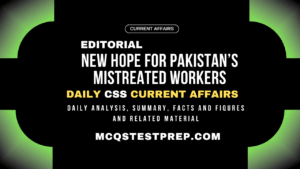Enter the Talks: Diplomacy Amidst Conflicts Pakistan Observer
In the face of escalating tensions and prolonged conflicts, the call to “enter the talks” underscores the importance of diplomacy in resolving disputes. Dialogue remains a cornerstone of conflict resolution, offering a platform for adversaries to find common ground and avert military confrontations. For Pakistan, where regional disputes with India, Afghanistan, and internal challenges demand nuanced approaches, negotiations are a critical tool for maintaining stability and fostering development.
This phrase resonates globally, from the India-Pakistan peace talks to efforts in Afghan reconciliation and multilateral forums like the United Nations. By emphasizing dialogue, nations can address security concerns, economic cooperation, and humanitarian crises, avoiding the high costs of war.
Overview
The article explores the significance of diplomatic talks in addressing conflicts, focusing on Pakistan’s regional challenges and its role in fostering peace through dialogue.
Notes for Beginners
- Diplomacy: The art of managing international relations through dialogue and negotiation.
- Confidence-Building Measures (CBMs): Steps taken by conflicting parties to reduce tensions and foster trust.
- Multilateral Talks: Negotiations involving multiple countries or organizations, such as the SAARC or Shanghai Cooperation Organisation (SCO).
Related CSS Syllabus Topics
- International Relations: Role of diplomacy in conflict resolution.
- Pakistan Affairs: Regional peace efforts and foreign policy.
- Current Affairs: Updates on bilateral and multilateral negotiations.
Facts and Figures
- India-Pakistan Dialogues: The last significant talks were held in 2015, stalled due to cross-border tensions.
- Afghan Peace Process: Pakistan facilitated the Doha Agreement (2020), leading to US withdrawal from Afghanistan.
- Kashmir Dispute: Over 70 years of conflict, with multiple failed peace initiatives.
- Global Success: The Good Friday Agreement (1998) in Northern Ireland showcases how sustained dialogue can resolve long-standing disputes.
Importance of Talks
- Avoiding Armed Conflict: Preventing war and its catastrophic consequences.
- Economic Benefits: Trade agreements and regional cooperation boost economies.
- Humanitarian Relief: Addressing issues like refugee crises and human rights violations.
- Global Image: Enhances a nation’s reputation as a peace promoter.
Challenges to Entering Talks
- Lack of Trust: Historical animosities hinder productive negotiations.
- External Interference: Influence of global powers complicates regional dialogues.
- Domestic Pressure: Political opposition or public opinion may resist compromise.
- Ineffective Mechanisms: Weak frameworks lead to inconclusive talks.
Notable Talks Involving Pakistan
- Tashkent Agreement (1966): Ended hostilities after the 1965 India-Pakistan war.
- Simla Agreement (1972): Aimed at resolving the Kashmir issue post-1971 war.
- US-Taliban Talks (2019-2020): Pakistan played a pivotal mediatory role.
- Indus Water Treaty Talks: Ongoing discussions on water-sharing issues with India.
Difficult Words and Meanings
| Word | Meaning | Synonyms | Antonyms |
|---|---|---|---|
| Diplomacy | Managing international relations through dialogue | Negotiation, Tact | Hostility |
| Bilateral | Involving two parties | Dual-sided | Multilateral |
| Reconciliation | Restoration of friendly relations | Settlement, Accord | Estrangement |
| Mediation | Intervention in a dispute to resolve it | Arbitration, Conciliation | Agitation |
| Stalemate | A situation where no progress can be made | Deadlock, Impasse | Resolution |
Conclusion
“Enter the talks” is not merely a phrase but a strategic imperative for resolving conflicts and building sustainable peace. For Pakistan, embracing diplomacy, whether with neighboring India or global stakeholders, is essential to address challenges and unlock opportunities. In a world where dialogue often takes precedence over confrontation, fostering a culture of negotiations can redefine Pakistan’s role on the global stage and ensure long-term stability.



